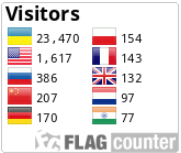CONTENT-BASED APPROACH IN TEACHING TECHNICAL AND SCIENTIFIC TRANSLATION
DOI:
https://doi.org/10.28925/2518-7635.2023.814Keywords:
content-based training strategy, methodology of texts’ selection, scientific and technical translation, translation skills developmentAbstract
This paper deals with content-based approach to translating scientific and technical literature, vital for gaining effective translation competence in specialized translation.
Central to this research is the development of a methodology for selecting appropriate texts for training future translators. The study emphasizes the importance of choosing authentic texts that are modern, diverse, and relevant to various fields of science and technology, sourced from printed publications, electronic resources, and materials commonly encountered in professional practice.
The research underscores the significance of thematic alignment, terminological richness, and the presence of lexical, grammatical, stylistic, and pragmatic challenges in the texts chosen to enhance students' translation skills.
The paper outlines a systematic approach to teaching translation skills, emphasizing a content-based strategy that focuses on communicative necessity and thematic relevance.
This methodological study on scientific and technical texts’ selection is the first in a series of similar ones aimed at creating an effective learning structure, which will ultimately enhance the competence of future professionals in this field.
Downloads
References
Bassnett, S. (2013). Translation Studies (4th ed.). Routledge. https://doi.org/10.4324/9780203488232
Bowker, L., & Ciro, J. B. (2019). Machine Translation and Global Research: Towards Improved Machine Translation Literacy in the Scholarly Community. Bingley, Emerald Publishing. https://doi.org/10.7202/1068912ar
Byrne, J. (2006). Technical translation. Usability strategies for translating technical documentation. Dordrecht: Springer. ISBN 1-4020-4652-9.
Calvo, E. (2015). Scaffolding translation skills through situated translating approaches: progressive and reflexive methods. The Interpreter and Translator Training, 9(3), 306-322. https://doi.org/10.1080/1750399X.2015.1103107
Cherednychenko, О. І. (2007). About Language and Translation. Kyiv, Ukraine.
Chernovatyi, L., & Kovalchuk, N. (2019). Teaching Non-Fiction Translation: the System of Exercises and Tasks. In Advanced Education, 6(12), 5–11. https://doi.org/10.20535/2410-8286.155535
Chernovatyi, L. M. (2013). Methodology of Teaching Translation as a Specialty. Ukraine. https://doi.org/10.1080/1750399X.2017.1359757
Cronin, M. (2013). Translation in the Digital Age. London: Routledge. https://doi.org/10.1075/target.29.1.09tei
Gerrig R. J., & Banaji, M. R. (1994). Language and thought. Thinking and problem solving (2-nd ed.). In Robert J. Sternberg (Ed.). Handbook of Perception and Cognition. (2, 233-261). Elsevier Inc. https://doi.org/10.1016/B978-0-08-057299-4.50014-1
Gile, D. (2009). Basic Concepts and Models for Interpreter and Translator Training (Revised edit.). Translation Library. John Benjamins Publishing Company. https://doi.org/10.1075/btl.8
Karaba, V. І. (2018). Translation of English Scientific and Technical Literature: Grammatical Challenges, Lexical, Terminological, and Genre-Stylistic Issues. Vinnytsia, Ukraine.
Kingscott, G. (2002) Technical translation and related disciplines. In Perspectives: Studies in Translation Theory and Practice, 10(4), 247–255. https://doi.org/10.1080/0907676X.2002.9961449
Law (2023). “On Amending Certain Laws of Ukraine Regarding Priority Directions of Science and Technology Development and Innovative Activity” . № 2859-ІХ https://zakon.rada.gov.ua/laws/ show/2859-20#Text
Li, L. (2017). Training undergraduate translators: a consciousness-raising approach. The Interpreter and Translator Training, 11(4), 245–258. https://doi.org/10.1080/1750399X.2017.1359757
Maat, H., & Stibbe, E. (2019). A Cognitive Approach to Specialized Language in the Translation of Scientific Texts. Emerald Publishing. https://doi.org/10.1072/8912-2
Mazur, O. (2015). A critical perspective on translation as a profession in the Ukrainian education system. Scientific Notes of Nizhyn State University, 2, 59–65. http://nbuv.gov.ua/UJRN/Nzfn_2015_2_13
Munby, J. (1981) Communicative Syllabus Design: A Sociolinguistic Model for Designing the Content of Purpose-Specific Language Programmes. Cambridge University Press.
Mykolaieva, S. Y., Bigych, О. B., Brazhnyk, N. О. (2002). Methodology of teaching foreign languages in higher education institutions. Kyiv, Ukraine.
Nebot, E. M. (2008). Corpus-based activities in legal translator training. The Interpreter and Translator Training, 2(2), 221–252. https://doi.org/10.1080/1750399X.2008.10798775
Olohan, M. (2015). Scientific and Technical Translation. Routledge. https://doi.org/10.4324/9781315679600
Radetska, S. (2009). Terminology as a subject of special attention for translators of scientific and technical literature. Scientific Notes of Kyrovohrad State Pedagogical University, 81(4), 209–212. http://nbuv.gov.ua/UJRN/Nzs_2009_81%284%29__52
Richards, J., & Rodgers, T. (2001). Approaches and Methods in Language Teaching (2nd ed., Cambridge Language Teaching Library). Cambridge University Press. https://doi.org/10.1017/CBO9780511667305
Snell-Hornby, M. (1994). Übersetzungswissenschaft, eine Neuorientierung: Zur Integrierung von Theorie und Praxis. Tübingen, Francke.
Wright, S. E., & Wright, L. D. Jr. (Eds.) Scientific and Technical Translation. (1993). American Translators Association Scholarly Monograph Series, VI. John Benjamins Publishing Company. https://doi.org/10.1075/ata.vi
Published
How to Cite
Issue
Section
License
Copyright (c) 2023 The Modern Higher Education Review

This work is licensed under a Creative Commons Attribution-NonCommercial 4.0 International License.













